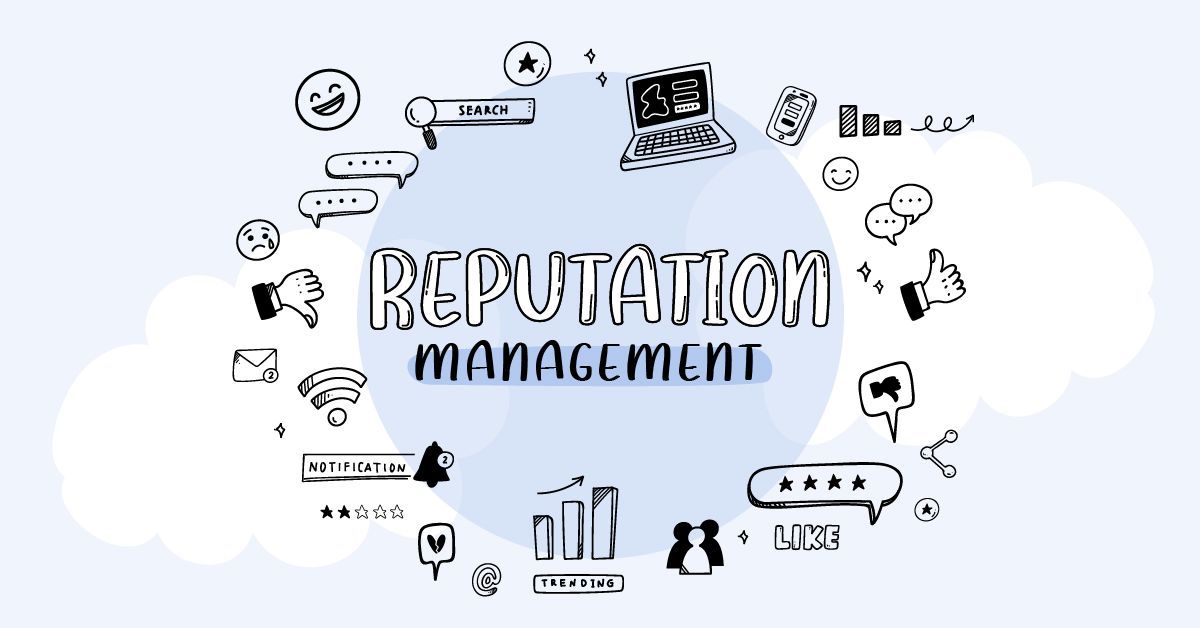The "art" of cold calling involves a strategic and skillful approach to engaging with prospects over the phone in order to generate leads and convert them into customers. This approach requires finesse, creativity, and active listening to the needs and concerns of potential customers. By mastering the art of cold calling, pest control businesses can open doors to new opportunities, create meaningful connections, and build long-term customer relationships. The art of cold calling goes beyond just making sales pitches; it involves building authentic relationships with prospects and positioning the business as a trusted advisor and problem solver. Ultimately, mastering the art of cold calling can lead to increased customer loyalty, referrals, and business growth.
Cold Calling for Pest Control Leads: Tips and Scripts
The Importance of Cold Calling for Generating Pest Control Leads
Cold calling is an essential strategy for pest control businesses looking to generate leads and grow their customer base. By proactively reaching out to potential customers who may not be aware of their services, businesses can establish direct contact, build relationships, and convert prospects into paying customers. Cold calling is particularly effective in the pest control industry, where the need for immediate pest eradication or prevention is often urgent.
One of the key advantages of cold calling is the ability to target specific audiences based on their unique pest control needs. By providing a personalized approach, businesses can engage with prospects, educate them about the services offered, and provide solutions to their pest problems. Cold calling can also help businesses gather valuable information about prospects, enabling them to tailor their offerings to meet specific requirements and qualify leads effectively. Additionally, cold calling can be a cost-effective lead generation strategy compared to other marketing methods, as it allows businesses to directly connect with potential customers without incurring substantial advertising costs.
In summary, cold calling is a vital strategy for pest control businesses to generate leads, identify opportunities, and convert prospects into loyal clients. By leveraging effective cold calling techniques, businesses can establish trust and credibility with prospects, resulting in increased conversions and revenue. Incorporating cold calling into their marketing strategy can help pest control businesses achieve long-term success and drive business growth.
The Concept of "The Art" of Cold Calling and How it Can Make a Difference

Understanding Pest Control Leads
Pest control leads can come from various types of customers, including residential, commercial, and industrial sectors. Each type of lead requires a customized approach to effectively generate and convert into customers, taking into consideration their specific needs, concerns, and requirements related to pest control in their respective settings. Understanding the nuances of each type of lead and tailoring the approach accordingly can greatly enhance the effectiveness of lead generation efforts for a pest control business. However, each type of lead comes with its own challenges and opportunities. For example, residential leads can be emotional and budget-conscious, while commercial leads can involve complex procurement processes and adherence to industry regulations. Industrial leads may require specialized technical expertise and compliance with stringent regulations. Nevertheless, each type of lead offers opportunities such as repeat business and referrals, long-term partnerships, and specialized services. It is essential to understand these challenges and opportunities to maximize the effectiveness of a pest control business's lead generation efforts.
Preparing for Cold Calls

Cold calling is an essential strategy for pest control businesses to generate leads and grow their customer base. However, it requires careful planning and preparation to be effective. Two critical steps in the cold calling process for pest control businesses are researching and gathering information about the target audience and creating a list of potential leads and organizing them efficiently.
Researching and gathering information about the target audience involves strategies such as market research, customer profiling, competitor analysis, customer feedback, online research, and networking and industry events. These strategies help in understanding the specific needs, pain points, and motivations of the target audience, which can be used to tailor the cold call messaging and increase the chances of converting them into customers.
Creating a list of potential leads and organizing them efficiently involves steps such as defining the target audience, identifying lead sources, generating a list of potential leads, segmenting and prioritizing leads, utilizing a CRM or spreadsheet, planning call schedule and follow-up strategy, preparing call scripts and materials, and continuously updating and refining the list. These steps help in prioritizing and managing leads, planning call schedule and follow-up strategy, and ensuring that the cold calling process is streamlined and effective in generating pest control leads.
In conclusion, cold calling can be an effective strategy for pest control businesses to generate leads and grow their customer base, but it requires careful planning and preparation. Researching and gathering information about the target audience and creating a list of potential leads and organizing them efficiently are critical steps that can help in making the cold calling process more effective and efficient.
Develop a script that includes an introduction, value proposition, and call-to-action
Here's an example of a cold calling script for pest control leads that includes an introduction, value proposition, and call-to-action:
Introduction:
"Hi, [Prospect's Name], my name is [Your Name] and I'm calling from [Your Pest Control Company]. I hope I'm not catching you at a bad time. How are you today?"
Value Proposition:
"I wanted to briefly introduce our pest control services that are tailored to meet the needs of [Residential/Commercial/Industrial] properties in your area. We have been serving the community for [X number of years] and have a team of experienced technicians who are experts in dealing with [specific pest problems, e.g., rodents, insects, termites, etc.]. We understand the challenges and concerns that pests can cause, and we are committed to providing safe and effective solutions to protect your property and your family/business."
Call-to-Action:
"I would love to offer you a complimentary inspection of your property to assess any potential pest issues and provide you with a customized pest control plan. Our services are designed to fit your specific needs and budget. Would you be interested in scheduling a time for our technician to visit your property and provide a free assessment?"
Additional Tips:
- Be polite and respectful throughout the call, and actively listen to the prospect's responses.
- Personalize the script based on the information you have about the prospect or their property.
- Highlight any unique selling points or competitive advantages of your pest control services.
- Be prepared to address any potential objections or questions the prospect may have.
- Clearly state the next steps or follow-up actions, such as scheduling a visit or sending additional information.
- Remember, the script is just a guide, and it's important to adapt it to your own style and the specific needs of each prospect.
- Practice and refine your script based on feedback and results from your cold calling efforts to continually improve your success in generating pest control leads.
Practice the script to ensure a confident and natural delivery during cold calls
Practicing the cold calling script is crucial to ensure a confident and natural delivery during your calls. Here are some tips for practicing your script:
Memorize the key points:
Familiarize yourself with the introduction, value proposition, and call-to-action in the script. Memorize the key points so that you can deliver them confidently without sounding robotic.
Role-play with a colleague or friend: Practice role-playing scenarios with a colleague or friend who can play the role of the prospect. This will help you simulate real-life situations and practice your script in a supportive environment. Ask for feedback on your tone, pace, and overall delivery.
Record and review:
Use a recording device or a call recording feature, if available, during your practice sessions. Record yourself delivering the script and listen to the playback. Pay attention to areas that need improvement, such as clarity, tone, and pacing.
Practice different scenarios: Anticipate different scenarios and objections that you may encounter during cold calls, and practice how to handle them smoothly. This can include objections about pricing, timing, or specific pest control concerns. Prepare concise and confident responses to address these objections.
Be natural and conversational:
Avoid sounding too scripted or robotic during your calls. Strive to sound natural and conversational, as if you're having a genuine conversation with the prospect. This will help you establish rapport and build trust with the prospect.
Fine-tune based on feedback: Continuously fine-tune your script based on feedback from your practice sessions and actual cold calls. Adjust your tone, pace, and wording to sound more natural and effective in engaging with prospects.
Practice, practice, practice: Lastly, remember that practice makes perfect. The more you practice, the more confident and natural you will become in delivering your script during cold calls. Make it a regular part of your routine to practice your script to continually improve your cold calling skills.
By practicing your script, you'll be better equipped to confidently deliver your value proposition and call-to-action during cold calls, leading to more effective lead generation for your pest control business.
Tips for Effective Cold Calling

Generating leads through cold calling can be challenging, particularly in the pest control industry where prospects may be skeptical of sales calls. Building rapport and establishing trust is essential to overcome skepticism and create a positive relationship with the prospect. This can lead to enhanced communication, credibility, and conversion rates, as well as differentiation from competitors.
However, objections and rejection are common challenges that must be effectively handled to ensure success. Techniques such as active listening, empathy, clarification and addressing objections directly, providing evidence and benefits, and using the “feel-felt-found” technique can help to overcome objections. It is also crucial to remain calm and professional, be persistent but respectful, and view rejection as an opportunity to learn and improve.
Overall, prioritizing rapport-building and trust-building techniques and effectively handling objections and rejection can greatly improve the chances of success in generating high-quality pest control leads through cold calling.
In cold calling for pest control leads, creating a sense of urgency and compelling the prospect to take action is critical for success. To achieve this, there are several effective strategies that can be used. These include offering time-sensitive promotions, sharing success stories and testimonials, communicating the consequences of inaction, presenting a compelling value proposition, using persuasive language, customizing the pitch, and asking for commitment. By incorporating these techniques into your cold calling strategy, you can increase the prospect's motivation to take action and generate more leads. Creating a sense of urgency and compelling the prospect to take action can ultimately lead to more successful sales and satisfied customers.
Scripting Examples for Pest Control Cold Calls
Here are some sample scripts for cold calling different types of pest control leads:
Script for Residential Homeowners:
Introduction:
"Hi, [Prospect's Name], my name is [Your Name] from [Your Pest Control Company]. I hope I'm not catching you at a bad time. I wanted to reach out because we've been helping homeowners in your area with their pest control needs for [X] years."
Value Proposition:
"I noticed that you have a lovely home in a [mention neighborhood]. Our team of expert pest control technicians can provide you with comprehensive pest control solutions to protect your home from unwanted pests like ants, rodents, termites, and more. We use environmentally-friendly methods to ensure the safety of your family and pets."
Call-to-Action:
"We are currently offering a limited-time promotion for new residential customers like yourself. If you schedule a service within the next [mention timeframe], you can avail of a [mention discount or incentive]. Would you be interested in scheduling a free inspection to assess your home's pest control needs?"
Script for Commercial Property Managers:
Introduction:
"Hello, [Prospect's Name], my name is [Your Name] from [Your Pest Control Company]. I specialize in working with commercial properties in [mention location] and wanted to introduce our professional pest control services to you."
Value Proposition:
"We understand the unique challenges that commercial properties face when it comes to pest control. Our team of experienced technicians can provide customized solutions to effectively control pests in commercial buildings such as offices, retail spaces, restaurants, and more. Our services are designed to minimize disruption to your business operations while ensuring a pest-free environment for your employees and customers."
Call-to-Action:
"We offer flexible scheduling options to accommodate your business needs and provide competitive pricing for our services. Would you be interested in scheduling a complimentary on-site inspection to assess your property's pest control needs and discuss how we can tailor a solution that fits your requirements?"
Script for Industrial Facility Managers:
Introduction:
"Hi, [Prospect's Name], my name is [Your Name] from [Your Pest Control Company]. I specialize in working with industrial facilities like yours and wanted to discuss our specialized pest control services with you."
Value Proposition:
"We understand that pest control is a critical aspect of maintaining a safe and compliant environment in industrial facilities. Our team of trained technicians has extensive experience in dealing with pests in industrial settings, including warehouses, factories, and manufacturing plants. We utilize industry-leading techniques and products to effectively eliminate and prevent pest infestations, ensuring minimal disruption to your operations and protecting your facility's reputation."
Call-to-Action:
"We would be happy to conduct a complimentary assessment of your facility's pest control needs and provide you with a customized solution. Our team can work with your schedule and requirements to implement a comprehensive pest control plan tailored to your facility's unique needs. Can we schedule a time for a consultation to discuss further?"
Remember to tailor the script to the specific needs and pain points of your target audience and to actively listen and address any objections or questions they may have during the call. Practice the script to ensure a confident and natural delivery, and be prepared to adapt and customize it based on the prospect's response.
Include key talking points and responses to common objections
When it comes to cold calling for pest control leads, it's essential to have some key talking points and responses to common objections to successfully close the deal. First, highlight the expertise of your pest control technicians, emphasizing their qualifications, training, and industry knowledge. Second, discuss the use of environmentally-friendly methods, which can be a compelling selling point for eco-conscious prospects. Third, mention your company's flexible scheduling options to accommodate the prospect's availability and minimize disruptions. Fourth, share customer testimonials or success stories to build credibility and trust.
In terms of responding to common objections, here are some key tips:
- If the prospect already has a pest control provider, acknowledge their loyalty but emphasize your specialized expertise, environmentally-friendly methods, and flexible scheduling options.
- If the prospect is concerned about budget, stress the importance of professional pest control in preventing costly damage to their property and protecting their health and safety. Offer competitive pricing and discuss any limited-time promotions or discounts that may be available to new customers.
- If the prospect handles pest control in-house, acknowledge their efforts but stress the persistence and challenges of pests. Offer a comprehensive assessment and a targeted pest control plan to effectively address their issues.
- If the prospect is not interested in pest control services, stress the health risks, property damage, and reputation concerns posed by pests. Offer a complimentary assessment and tailored solutions to protect their property.
Remember to listen actively to the prospect's objections and concerns, respond professionally and respectfully, and highlight the value of your services to overcome objections and move the conversation forward
Following Up and Closing the Sale
Following up with prospects who show interest but are not ready to commit immediately is crucial to effective cold calling. Building relationships, nurturing prospects, uncovering potential concerns, maximizing opportunities, and demonstrating professionalism are reasons to follow up. Strategies for nurturing leads and maintaining communication include segmenting leads, personalizing communication, providing value, utilizing multiple channels, setting follow-up reminders, listening and responding, and building trust. Techniques for closing the sale include offering discounts, providing testimonials and social proof, scheduling a site visit, and addressing concerns or objections. A successful cold calling campaign requires a comprehensive approach that includes effective follow-up, lead nurturing, and closing strategies.
Cold calling is an effective strategy for generating pest control leads, but it requires specific techniques and strategies. The art of cold calling emphasizes strategic planning, effective communication, and building rapport with prospects. It is important to identify the target audience, research their needs, prioritize potential leads, and develop a script that includes an introduction, value proposition, and call-to-action.
The script should be customized based on the target audience's pain points and preferences. Key techniques include active listening, overcoming objections, creating a sense of urgency, and closing the sale with a clear call-to-action. Additionally, keeping records of calls, tracking results, refining the script, seeking feedback, maintaining a professional tone, and nurturing leads can further enhance the effectiveness of cold calling.
Cold calling is an ongoing process that requires patience, perseverance, and continuous improvement. By implementing these best practices, pest control professionals can generate high-quality leads and convert prospects into loyal customers.
Pest Control Marketing Tips
All Rights Reserved -Digital Containment LLC






